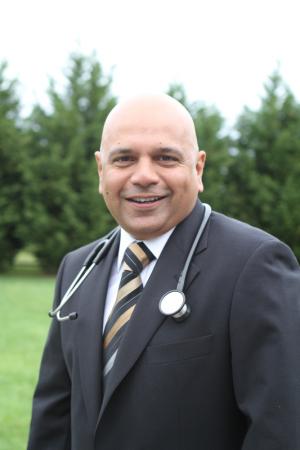Resolved: Rethink your new year’s resolutions
“I think in terms of the day’s resolutions, not the year’s.” - Henry Moore, 1898-1986
What were your resolutions this year? With 2016 barely a month old, it may be the perfect time to rethink the whole idea of resolutions. A new year can signal new beginnings, new goals and new ambitions, but it can also mean the same old lack of follow-through and fear of failure.
Whether your resolutions revolve around body image or getting a new job, the dropoff rate in the first week alone is steep - as high as 60 percent, according to research. The final success rate is even poorer, according to a 2007 British study showing that 88 percent of those who set new year’s resolutions fail, despite 52 percent confidently predicting success at the beginning. The U.S. doesn’t fare any better, with data from the University of Scranton revealing that 45 percent of Americans regularly make new year’s resolutions, but only 8 percent actually keep them.
There are effective ways to break the cycle, however, which center around reframing your resolutions. In so doing, you may well achieve some of your most heartfelt life goals in 2016. Consider these strategies:
Exercise, weight loss and diet are the most common targets for improvement, but look beyond the superficial to make resolutions that will have a real impact on your health and well-being. This can be as simple as deciding to get a solid eight hours of sleep each night, or to take 10 minutes a day to meditate or connect with nature, or to make time for mind-body activities like tai chi and yoga. If you want to spend more time with your family, resolve to go tech-free at home, and disconnect from phones and tablets when you’re all together.
Put your plan in writing. Be as descriptive as possible. Vague goals such as ‘eat healthy, get fit’ beget vague results, so make sure your plan includes details.
If you plan to eat healthy, explain your process, methodology (low calorie, low carb or a balanced diet approach) and meal plans; likewise for fitness, write down how often, how much and what kind of exercise will work for you.
Set check points. Small, achievable targets help you track progress. Take it one step at a time - it’s easier to lose one to two pounds a week or month than 20 pounds in six months. Reaching milestones along the way will build your confidence and help move you further toward your ultimate goal.
Be realistic. If you’re not an early riser, it’s unlikely you’ll stick to an early-morning exercise routine, so don’t set yourself up to fail. Plan activities that you like to do, and vary them to stave off boredom.
Single out one goal for success in 2016. Many people try to tackle multiple resolutions simultaneously, and almost always crash and fail. Identify the one most important to you, and work at slowly…once achieved, build on your success and take on new goals.
Expect setbacks and failures as part of the plan. It won’t always be smooth sailing, but don’t be discouraged. Learn from your mistakes and try not to make them again.
Use “if-then” planning. Known as “implementation intentions,” this strategy of trying to predict obstacles, and formulating ways to surmount them, prepares you to make the right choices when those challenges inevitably occur. Numerous studies support the use of “if-then” thinking in significantly increasing your chances of success over the long term.
Gather a support team. A team approach works well with diet, exercise or smoking cessation resolutions. Having your own group of personal boosters is of enormous help when you’re feeling down or your resolve is weakening.
Go public with your plan. This may not work for everyone - if you’re likely to become embarrassed about possibly failing in a very open way, skip it. However, if you’re the type that is energized by a public challenge, you’ll achieve better results.
What’s your goal this year? Set it, plan it, share it and stick with it. I wish you every success in 2016.
Dr. Uday Jani, a board-certified Internist, is in private practice at Shore View Personal Care. He completed a two-year Integrative Medicine fellowship in 2012 at the University of Arizona, under Dr. Andrew Weil, the renowned founder of Integrative Medicine. For more information, call 302-684-0990 or visit www.udayjanimd.com.























































